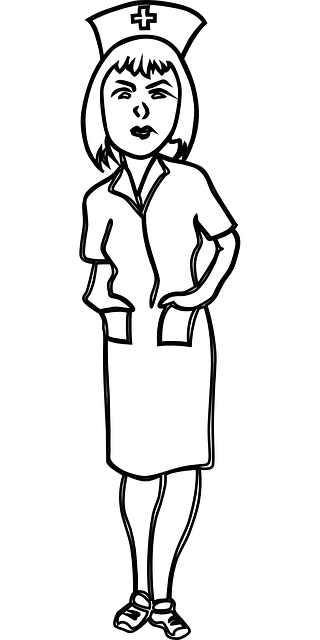
A home health nurse can offer a variety of medical services in the privacy of a patient's own home. These nurses are able to treat a variety of conditions such as cognitive impairment, chronic illness, and physical injury. These are the things you need to know if you want to hire a nurse at home.
A home care nurse works to help patients maintain their independence and quality of life. These nurses are also able to assist patients recovering from illnesses, injuries, or surgeries. Home health care can be very expensive so you may need to pay out-of-pocket for a provider. You may be eligible to pay a portion of the cost if your health insurance covers this.
Before you begin searching for a homecare nurse, decide which services you require. You may need an hourly nurse to help with daily tasks, or you may need a round-the-clock nurse. You will need to pay a different salary depending on the level you require.

It's important to interview a potential nurse before you make a hiring decision. Interviewing a potential nurse will allow you to ask questions and gain a better understanding of their work. You might also ask what your loved one likes to do and how much help he or she requires.
During the interview, the prospective home care nursing nurse will discuss the needs of your loved ones. If you have an elderly spouse, it is important to make sure the caregiver has the right personality and experience.
Make sure you have a list of potential nurses and aides to help your loved one with their medical issues. There are many situations that can affect the quality of your loved one's life, such as surgery or cancer. You can avoid stress and enhance the quality of your loved ones' lives by getting the right care.
Your doctor can likely give valuable advice regarding the types of in home nursing services that you need. It is possible that you have relatives or friends who have looked into nursing services. Ask them about their experience with a home nursing nurse.

If you select a home care nursing professional, you can feel secure that your loved one will get the care they require. Home healthcare encourages dignity and comfort for older patients. They may feel more comfortable at home, and less likely to experience stress.
Home care nurses are much more flexible and economical than in hospital care. They can assist you or your loved ones in recovering from serious illnesses or accidents. Being able to have a professional visit your home can also help relieve some of the burden of caring.
While home healthcare can be beneficial, it is important to remember that it is not always easy to balance the demands of your work, family and other responsibilities. Sometimes you might need to hire a private nurse to help your loved ones.
FAQ
What about the role played by the private sector?
Private sector plays a crucial role in healthcare delivery. The private sector provides some equipment for hospitals.
It also pays for some of the staff who work in hospitals. It makes sense that they should be involved in the management of the system.
They have their limits.
Private providers are not always able to compete with the free services offered by governments.
They shouldn't attempt to manage the entire system. This could indicate that the system isn't providing good value for your money.
What impact will it have on the healthcare industry if there is no Medicare
Medicare is an entitlement program that provides financial aid to low income individuals and families who can not afford their premiums. This program covers more than 40 million Americans.
Millions of Americans will lose coverage if the program is not implemented. Some private insurers may stop offering policies to pre-existing patients.
What does the "health care” term mean?
A service that helps maintain good mental, physical health is known as health care.
What are the various health care services available?
Patients need to be aware that they can get quality healthcare any time. No matter whether you require an urgent appointment or routine check-ups, we are available to help.
We offer many different types of appointments, including walk-in clinics, same-day surgery, emergency department visits, and outpatient procedures. We offer home care visits to those who live far from our clinic. We will ensure that you get prompt treatment at the nearest hospital if you aren't comfortable visiting our clinic.
Our team includes dentists and doctors as well pharmacists and nurses. We strive to make every visit as simple and painless for our patients.
What should I know about immunizations?
Immunization is the process of stimulating an immune response to a vaccine. The body creates antibodies (immunoglobulins), in response to the vaccine. These antibodies protect against infection.
What are the various health care services available?
A health care service is a medical facility that provides healthcare services for patients. An example of a healthcare service is a hospital. A hospital typically includes several departments like the emergency department and intensive care unit. It also has pharmacy and outpatient clinics.
Statistics
- Price Increases, Aging Push Sector To 20 Percent Of Economy". (en.wikipedia.org)
- Consuming over 10 percent of [3] (en.wikipedia.org)
- Over the first twenty-five years of this transformation, government contributions to healthcare expenditures have dropped from 36% to 15%, with the burden of managing this decrease falling largely on patients. (en.wikipedia.org)
- Foreign investment in hospitals—up to 70% ownership- has been encouraged as an incentive for privatization. (en.wikipedia.org)
- The health share of the Gross domestic product (GDP) is expected to continue its upward trend, reaching 19.9 percent of GDP by 2025. (en.wikipedia.org)
External Links
How To
What are the Four Health Systems?
The healthcare system includes hospitals, clinics. Insurance providers. Government agencies. Public health officials.
The goal of this infographic was to provide information to people interested in understanding the US health care system.
Here are some key points:
-
Annual healthcare spending totals $2 trillion and represents 17% GDP. That's almost twice the size of the entire defense budget!
-
Medical inflation was 6.6% in 2015, higher than any other category of consumer.
-
On average, Americans spend 9% of their income on health costs.
-
As of 2014 there were more than 300,000,000 Americans who weren't insured.
-
Although the Affordable Health Care Act (ACA), has been approved by Congress, it hasn't yet been fully implemented. There are still large gaps in coverage.
-
A majority of Americans believe that the ACA should continue to be improved upon.
-
The US spends a lot more money on healthcare than any other countries in the world.
-
Affordable healthcare would mean that every American has access to it. The annual cost would be $2.8 trillion.
-
Medicare, Medicaid and private insurers pay 56% of healthcare expenses.
-
The top three reasons people aren't getting insured include not being financially able ($25 billion), having too much time to look for insurance ($16.4 trillion), and not knowing what it is ($14.7 billion).
-
There are two types of plans: HMO (health maintenance organization) and PPO (preferred provider organization).
-
Private insurance covers most services, including doctors, dentists, prescriptions, physical therapy, etc.
-
Public programs provide hospitalization, inpatient surgery, nursing home care, long-term health care, and preventive services.
-
Medicare, a federal program, provides seniors with health insurance. It covers hospital stays, skilled nursing facilities stays, and home care visits.
-
Medicaid is a state-federal joint program that provides financial help to low-income persons and families who make too many to qualify for any other benefits.